If you’re curious about the origins of craft cannabis in British Columbia, then this article is for you. Lets get into the rich history of this region and explore how BC became synonymous with high-quality, small-batch cannabis cultivation. From the early days of underground operations to the establishment of licensed craft cannabis producers, this fascinating journey paints a vibrant picture of the evolution and resilience of the BC cannabis industry. So, roll one up, and get ready to uncover the intriguing story behind the rise of craft cannabis in British Columbia.
Early Origins of Cannabis Cultivation in BC
Cannabis has a long and storied history in British Columbia (BC), with its origins dating back centuries. The introduction of cannabis to BC can be traced back to early trading routes and contact with Indigenous communities. The indigenous peoples of BC have had a deep connection to cannabis for generations, valuing its medicinal, spiritual, and practical uses.
Historical Use of Cannabis in Indigenous Communities
Indigenous communities in BC have a rich history of utilizing cannabis for various purposes. Cannabis was often used in spiritual ceremonies, healing practices, and as a source of fiber for making clothing and other goods. The plant held great cultural significance and was deeply integrated into the daily lives of many indigenous peoples.
Cannabis Cultivation by Early Settlers
With the arrival of European settlers and the establishment of colonial settlements in BC, cannabis cultivation began to expand. Early settlers recognized the potential economic value of cannabis and started growing it for personal and commercial use. During this time, cannabis was predominantly cultivated for its hemp fiber, which was used in the production of ropes, clothing, and other materials.
Emergence of the Underground Cannabis Market in BC
As the demand for cannabis grew, so did the illicit cultivation and distribution networks. BC became known for its high-quality cannabis, often referred to as “BC Bud.” The underground cannabis market thrived, with BC becoming a major hub for illicit cultivation and distribution. This underground market played a significant role in shaping the perception of BC cannabis and solidifying its reputation for having the best weed in the world.
Evolving Cannabis Laws in BC
Early Criminalization of Cannabis
In the early 20th century, cannabis faced increased scrutiny and was eventually criminalized in BC, which impacted BC’s weed culture. The global trend of criminalizing cannabis during this time was largely influenced by international pressure and the belief in its harmful effects. Cannabis cultivation and use were driven underground, leading to the rise of an illicit and unregulated market.
Decriminalization Efforts and Medical Cannabis
In the late 20th century, attitudes towards cannabis began to shift. The decriminalization movement gained traction, with calls for a more compassionate and evidence-based approach to drug policy. Medical cannabis emerged as a major turning point, with patients advocating for access to cannabis for therapeutic purposes. BC played a significant role in championing these efforts and paved the way for the acceptance of medical cannabis across Canada.
Introduction of the Medical Access Regulations
The introduction of the Medical Access Regulations in 2001 marked a significant milestone for cannabis in BC. These regulations allowed for legal access to medical cannabis for patients with authorized prescriptions. It provided a framework for production, distribution, and consumption of cannabis for medical purposes, laying the groundwork for the regulated cannabis market we see today.
Shift Towards a Regulated Market
The legalization of recreational cannabis in Canada in 2018 further solidified the shift towards a regulated market in BC. With the introduction of the Cannabis Act, BC implemented a comprehensive regulatory framework for the cultivation, distribution, and sale of cannabis. This shift towards a regulated market aimed to prioritize public safety, ensure product quality, and eliminate the criminal element associated with the illicit market.
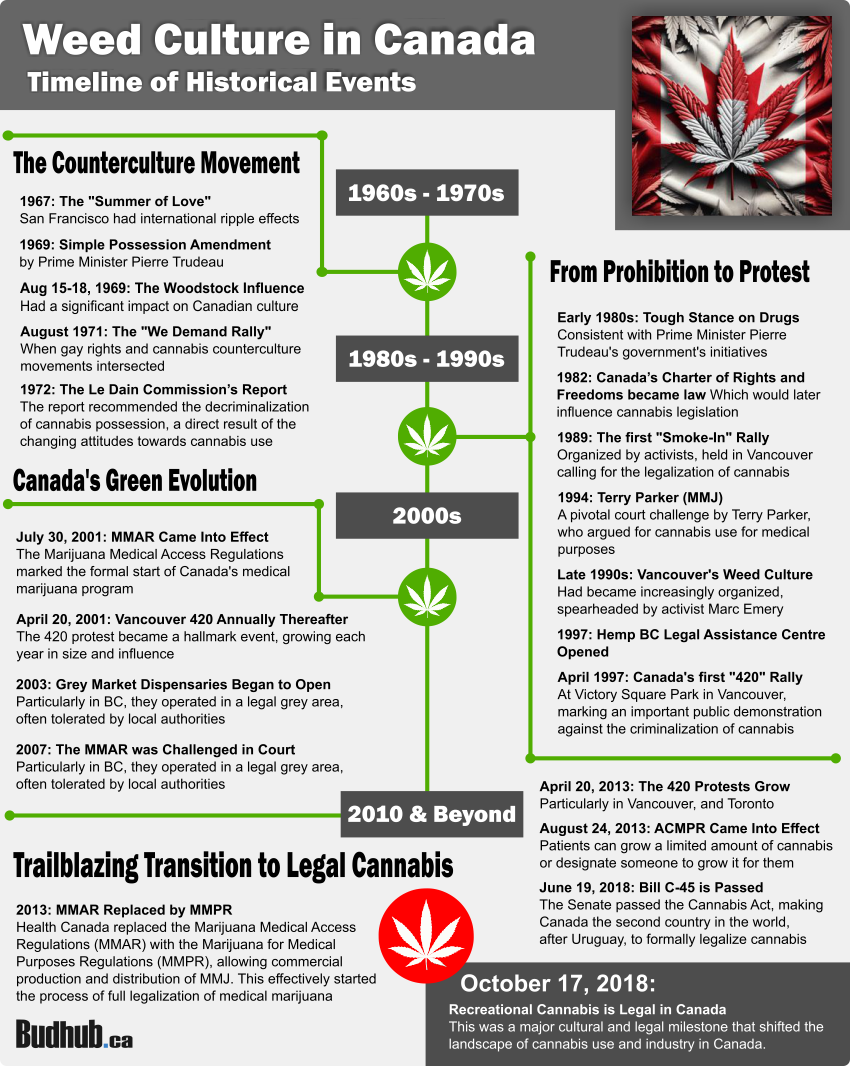
Learn more about the history of weed culture in Canada.
Emergence of Craft Cannabis
Definition and Characteristics of Craft Cannabis
Craft cannabis is a term used to describe cannabis that is produced in small-scale, artisanal settings, with a focus on quality, attention to detail, and sustainable cultivation practices. Craft producers prioritize the artistry of cultivation, taking pride in their ability to produce unique and exceptional cannabis products.
Early Pioneers of Craft Cannabis in BC
BC has been at the forefront of the craft cannabis movement, with early pioneers paving the way for the emergence of the craft market. These pioneers were passionate individuals with unique knowledge of BC’s excellent growing conditions who recognized the value of small-scale cultivation and were dedicated to producing high-quality cannabis. Their dedication and commitment laid the foundation for the emerging craft cannabis industry in BC.
Importance of Small-scale Cultivation and Quality
Craft cannabis producers prioritize quality over quantity, focusing on maintaining strict quality control measures throughout the cultivation process. The small-scale nature of their operations allows for greater attention to detail, resulting in cannabis products that are known for their exceptional terpene profiles, potency, and overall experience. Craft cannabis emphasizes the importance of terroir and the unique characteristics that come from specific growing regions.
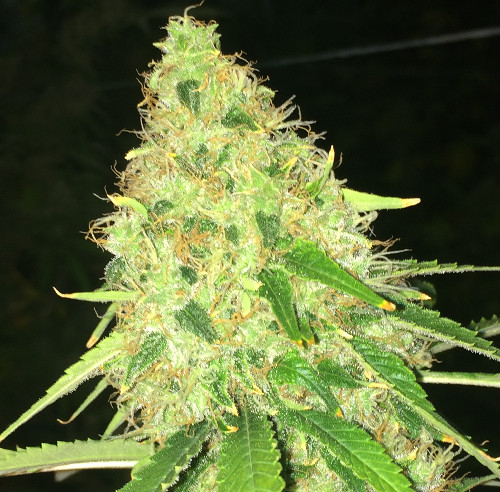
Flower by KAI – Kootenay Aeroponic Incorporated BC craft cannabis brand.
Community Support and Demand for Craft Cannabis
The demand for craft cannabis in BC has been steadily growing, driven by consumers who value the quality, uniqueness, and sustainability associated with craft products. Craft cannabis producers often have deep ties to their local communities, creating a sense of pride and support for their products. Consumers in BC appreciate the connection to their community and the ability to contribute to the local economy by supporting craft producers.
As a BC resident for over 40 years, living with the community connection to craft cannabis is like holding a piece of our local culture in your hands—priceless and uniquely ours. – TCB
BC Bud Phenomenon
Origins of the Term ‘BC Bud’
The term ‘BC Bud‘ originated in the underground cannabis market and became synonymous with high-quality cannabis from BC. Its exact origins are unclear, but it gained popularity in the 1970s and 1980s. BC Bud was highly sought after for its potency, aroma, and overall superior quality, leading to its widespread recognition and infamous reputation.
Global Recognition and Reputation
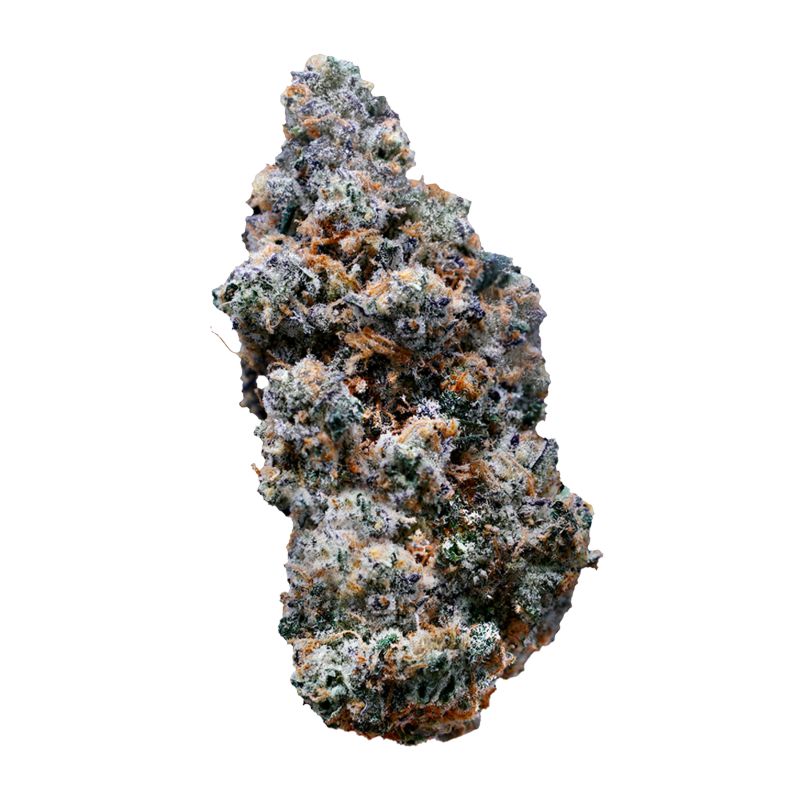
Example of BC’s Gas Strain by Pistol and Paris.
BC Bud quickly gained international recognition for its exceptional quality and became sought after worldwide. The cannabis community marveled at the consistently high standards and unique profiles of BC Bud, further solidifying its reputation as some of the best cannabis in the world. The global recognition of BC Bud brought attention to BC’s cultivation practices and helped establish the province as an international cannabis powerhouse.
Role of BC’s Climate and Growing Conditions
BC’s climate and growing conditions play a significant role in the exceptional quality of BC Bud. The province’s mild climate, ample rainfall, and rich soil provide ideal conditions for cannabis cultivation. These natural advantages contribute to the development of robust plants, which in turn produce cannabis with enhanced flavors, aromas, and potency.
Impact on the Province’s Economy
The BC Bud phenomenon has had a substantial impact on the province’s economy. The underground cannabis market, fueled by BC Bud, created jobs, drove economic growth, and contributed to the prosperity of many communities. With the shift towards a regulated market, craft cannabis producers are now able to contribute to the legal economy, further strengthening BC’s position in the global cannabis industry.
Challenges Faced by Craft Cannabis Producers
Competition with Larger Licensed Producers
Craft cannabis producers face stiff competition from larger licensed producers who have greater resources and economies of scale. While craft producers offer unique and high-quality products, they often struggle to compete with the lower prices and larger quantities produced by their larger counterparts. This competition poses a challenge for craft producers in gaining market share and maintaining profitability.
Regulatory Hurdles and Licensing Requirements
The regulatory landscape in BC can be complex and challenging for craft cannabis producers to navigate. Strict licensing requirements and compliance regulations can be difficult and too expensive for small-scale operations to meet, resulting in barriers to entry and increased costs. Craft producers often have limited resources, making it challenging to comply with all the necessary regulations while competing with larger producers.
Outdoor Cultivation Restrictions
BC’s regulations place restrictions on outdoor cannabis cultivation, limiting the ability of craft producers to take advantage of the province’s natural growing conditions fully. While outdoor cultivation is seen as a sustainable and cost-effective method, craft producers may be limited to indoor or greenhouse cultivation, which comes with its own set of challenges and increased costs.
Limited Access to Distribution Channels
BC craft cannabis producers often face challenges in accessing distribution channels, especially in a regulated market. The concentration of distribution channels in the hands of larger players can make it difficult for craft producers to get their products to market. This limited access poses a significant challenge for craft producers in reaching their target audience and establishing a strong foothold in the industry.
But there is hope with the implementation of BC’s Direct Delivery System in 2023.
Craft Cannabis and Sustainability
Environmental Benefits of Small-scale Cultivation
Small-scale craft cannabis cultivation offers several environmental benefits compared to large-scale operations. Craft producers are more likely to utilize sustainable farming practices, such as organic and regenerative farming methods. These practices minimize the use of harmful chemicals and promote biodiversity, resulting in a smaller environmental footprint.
Organic and Regenerative Farming Practices
Craft cannabis producers, driven by a passion for quality and sustainability, often prioritize organic and regenerative farming practices. These practices promote soil health, conserve water, and reduce the use of synthetic pesticides and fertilizers. By focusing on sustainable cultivation methods, craft producers contribute to the long-term health and resilience of the ecosystem.
Importance of Preserving Genetic Diversity
Craft cannabis producers play a crucial role in preserving genetic diversity within the cannabis plant. They often cultivate heirloom and rare strains that may be otherwise lost in larger-scale operations. Preserving genetic diversity not only ensures the availability of unique and diverse cannabis varieties but also safeguards the future of the plant by maintaining a robust genetic pool.
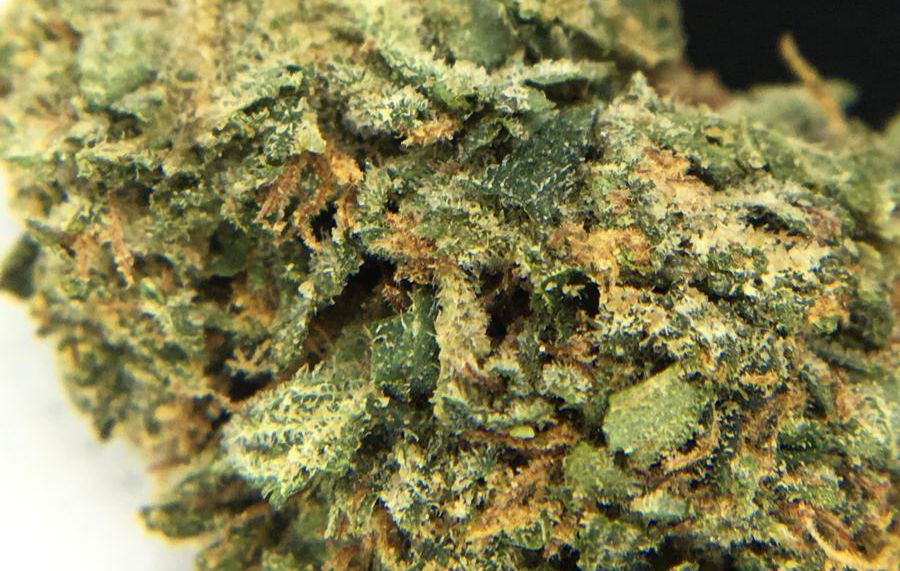
Feature image of my favorite BC strain of all time – BC Rockstar
Community Integration and Social Responsibility
Craft cannabis producers place a strong emphasis on community integration and social responsibility. Many craft producers actively engage with their local communities, supporting local initiatives and employing local residents. Craft operations prioritize sustainable business practices and aim to create a positive impact on the surrounding community, fostering a sense of belonging and pride.
Craft Cannabis Tourism in BC
Attracting Cannabis Enthusiasts and Connoisseurs
Craft cannabis has become an attraction for both cannabis enthusiasts and connoisseurs, drawing them to BC. The opportunity to explore and experience the diverse range of craft cannabis products is a significant draw for tourists who appreciate the quality and unique characteristics of BC’s cannabis. Craft cannabis tourism offers an immersive experience for cannabis enthusiasts looking to explore the rich and varied cannabis culture in the province.
Cannabis-friendly Tourism Initiatives
BC has begun embracing cannabis-friendly tourism initiatives, recognizing the potential economic benefits and experiential opportunities that craft cannabis tourism can provide. Cannabis-friendly accommodations, tours of craft farms, and educational experiences are becoming increasingly popular, allowing tourists to engage with craft cannabis producers on a personal level and gain a deeper understanding of the cultivation process.
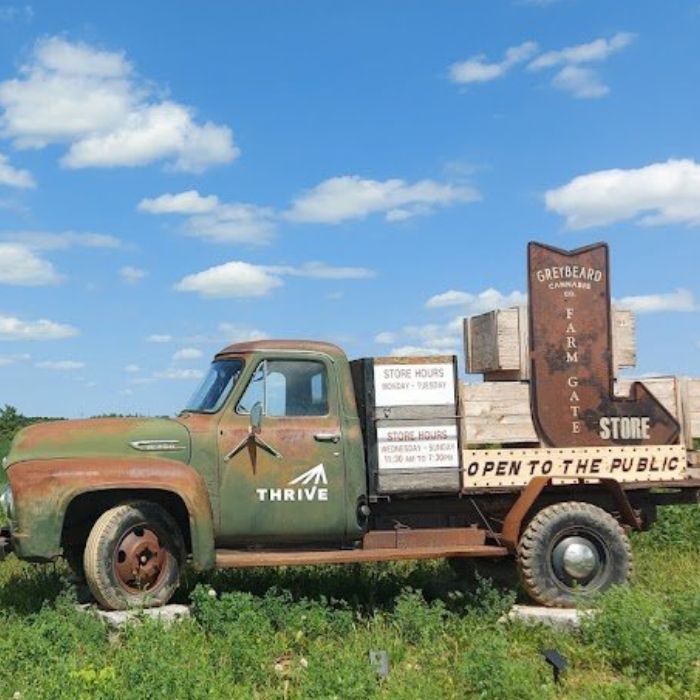
Explore BC’s Farmgate Cannabis tours.
Promotion of Local Craft Cannabis Experiences
BC’s craft cannabis industry is increasingly being promoted as an integral part of the province’s overall tourism offerings. Marketing and promotional efforts aim to highlight the unique experiences, flavors, and expertise that craft cannabis producers in BC have to offer. By promoting local craft cannabis experiences, BC seeks to attract tourists who value authenticity, sustainability, and the celebration of local culture.
Interaction with Other Recreational Activities
Craft cannabis tourism in BC often goes hand in hand with other recreational activities that the province has to offer. Visitors can explore BC’s stunning natural landscapes, engage in outdoor adventures, and immerse themselves in the diverse cultural experiences that make the province unique. The integration of craft cannabis into these broader recreational activities enhances the overall tourism appeal and provides visitors with a comprehensive experience.
Future Prospects for Craft Cannabis in BC
Evolving Regulations and Legalization
As the cannabis industry continues to evolve, regulations surrounding craft cannabis cultivation and distribution are changing. It is essential for the government to strike a balance between ensuring public safety and allowing craft producers to thrive. Continued collaboration and dialogue between regulators and craft producers will be crucial to developing a regulatory framework that supports the growth and sustainability of the craft cannabis industry in BC.
Potential for Growth and Market Expansion
The craft cannabis industry in BC has significant potential for growth and market expansion. As consumers become more discerning, they increasingly seek out unique and high-quality products. Craft producers, with their focus on quality and attention to detail, are well-positioned to meet this demand. By continuing to innovate, adapt to consumer preferences, and build strong brands, craft cannabis producers can carve out a niche in the market and continue to thrive.
Investment and Support for Craft Cannabis
Investment and support from both the private and public sectors are crucial for the long-term success of BC’s craft cannabis industry. Craft producers often face financial constraints and require support in scaling their operations, accessing distribution channels, and building their brands. Government incentives, grants, and initiatives that specifically target craft cannabis can provide the necessary support for small-scale producers to flourish and contribute to BC’s economy.
Join the BC Craft Cannabis Movement
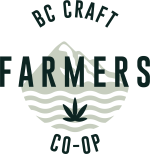
Support BC’s legendary craft cannabis farmers and get involved. Learn more
Conclusion
The history of craft cannabis in BC is deeply intertwined with the province’s cultural heritage, economic development, and natural advantages. From its early origins in indigenous communities to the emergence of the BC Bud phenomenon, craft cannabis has captured the attention and admiration of cannabis enthusiasts worldwide.
The advantages of small-scale cultivation, commitment to quality, and sustainability have driven the growth and success of the craft cannabis industry in BC.
Looking ahead, the future of craft cannabis in BC holds great promise. The industry faces its fair share of challenges, but with continued support, innovative regulation, and investment, craft producers can thrive and contribute to a thriving and sustainable craft cannabis economy.
BC’s craft cannabis industry is a testament to the importance of preserving the artistry of cultivation, valuing quality over quantity, and championing the unique characteristics that make craft cannabis an exceptional and sought-after product. By advocating for small-scale producers and sustaining a thriving craft cannabis industry, BC can continue to leave a lasting legacy in the world of cannabis.
Cheers,
The Chronic Beaver




